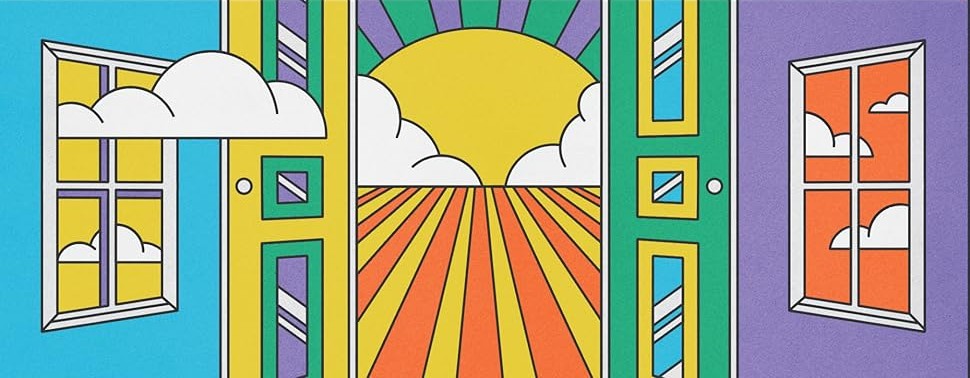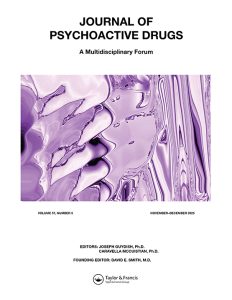 My name is Mickey, and for much of my life, I’ve lived two conflicting realities. On the surface, I was the embodiment of recovery success: sober since the age of 21, a stable career, a family, and decades of commitment to Alcoholics Anonymous (AA). To most, I was living proof that the 12 steps worked, that sobriety could transform a life. But beneath the surface, I carried a silent, gnawing pain—a deep sense of inadequacy, shame, and loneliness that I couldn’t name or escape.
My name is Mickey, and for much of my life, I’ve lived two conflicting realities. On the surface, I was the embodiment of recovery success: sober since the age of 21, a stable career, a family, and decades of commitment to Alcoholics Anonymous (AA). To most, I was living proof that the 12 steps worked, that sobriety could transform a life. But beneath the surface, I carried a silent, gnawing pain—a deep sense of inadequacy, shame, and loneliness that I couldn’t name or escape.
Despite my sobriety, I felt like I was still just surviving, trapped in a cycle of people-pleasing, overworking, and desperately chasing a sense of worthiness that always felt just out of reach. This is the story of how I finally broke free—not by abandoning the principles of AA, but by finding new tools and perspectives through psychedelics that helped me uncover a deeper, more authentic version of myself. It’s a story of holding onto tradition while daring to step into the unknown, of learning to let go, and of discovering that sometimes, the path to healing means unlearning everything you thought you knew.
Inherited Pain: The Weight of Generational Trauma
Recovery didn’t begin with me—it started generations before. My grandmother struggled with what I now understand as anxiety, shame, and guilt. Her life was a meticulous balancing act, her house spotless, her antiques perfectly arranged, but her inner world was chaos. My father carried his own battles, crashing cars, getting into fights, and struggling with addiction. Yet, he made the extraordinary decision, over 50 years ago, to quit drinking and smoking in a single day, becoming a pillar in the local AA community.
I was born into a family of recovery, a lineage of resilience and dysfunction. Yet, as a teenager, I found myself following a familiar path. By 16, I was crashing cars, blacking out, and landing in treatment for the first time. Recovery didn’t stick then, but the seeds were planted.
At 21, after bouncing checks to a lawyer defending me for yet another DWI, I hit rock bottom. My father stepped in, calling me out on my self-destruction. This time, sobriety stuck. I entered AA thinking life as I knew it was over. Yet, as I listened to the promises, I dared to hope that maybe—just maybe—things could get better.
The Success Mask: Sobriety Without Freedom
Sobriety gave me structure. AA taught me how to live, how to work, and how to be dependable. I got a degree, a career, and a family. On paper, I was a success. But inside, the shame, guilt, and people-pleasing didn’t fade—they festered. I threw myself into workaholism, believing that achieving the American Dream would fill the hole inside me. It didn’t.
My addictions didn’t vanish; they evolved. Food, nicotine, caffeine—these became the new ways I numbed myself. Meetings helped me stay sober, but they couldn’t touch the deep loneliness and spiritual stagnation I felt. I watched others in recovery speak of profound spiritual awakenings, but they remained elusive to me. I thought maybe I just got sober too young, that I’d missed some essential step in growing up.
The Breaking Point: Realizing Success Wasn’t Enough
About five years ago, my carefully constructed life began to unravel. I’d reached a point in my career where I could pay off my mortgage and bills—everything I thought would bring me peace. Instead, I felt emptier than ever. Money couldn’t fill the void. My marriage felt like a hollow performance. I was working harder than ever, but for what? I didn’t even know.
The breakdown came swiftly. I lost my job after refusing to compromise my values during a heated board meeting. At home, I confronted my wife, admitting that I felt like our relationship was a sham. I told her, “I want my insides and my outsides to match. There has to be more than this.” I was desperate for authenticity, intimacy, and a sense of meaning.
The Call to Psychedelics: Searching for Answers
During this period, I stumbled upon the documentary How to Change Your Mind and the research of Joe Dispenza. Something about their work resonated deeply. I remembered my experiences with psychedelics in my youth—mushrooms and LSD had left a mark on me even then. I felt them calling to me now, decades later, as I faced the prospect of becoming another long-sober person who takes his own life.
With nothing left to lose, I took the leap. I sourced psilocybin and embarked on my first intentional journey, alone, without a shaman or guide. My only intention was, “Please help me. Show me what’s going on.” What I discovered was life-changing.
Letting Go: The Power of the Medicine
Psychedelics didn’t replace the foundation AA had given me, but they revealed truths I’d been too afraid to face. They showed me that I didn’t need to keep adding more helium to the balloon of life. I didn’t need more success, more knowledge, or more distractions. I needed to let go of the shame, guilt, and people-pleasing that had tethered me for so long.
In the year and a half since joining Psychedelics in Recovery (PIR), I’ve made more spiritual progress than I did in over three decades of traditional recovery. The medicine, combined with the insights of ACA and other modalities, has helped me address the root causes of my pain rather than just managing the symptoms. I’ve learned that I am enough, just as I am.
A New Beginning: Trusting the Universe
Today, I’m on the brink of even greater change. My marriage may end in divorce, and that terrifies me. But for the first time in my life, I trust the universe. I’m no longer swimming against the current, trying to control everything. Instead, I’m learning to let go and embrace whatever comes.
My journey isn’t over, but I finally feel like I’m on the right path. Sobriety gave me the tools to survive, but psychedelics have given me the courage to truly live. I hope my story can offer a glimmer of hope to anyone who feels stuck, who wonders if there’s more to life than just staying sober. There is. It’s messy, it’s terrifying, and it’s beautiful. And it’s worth it.




